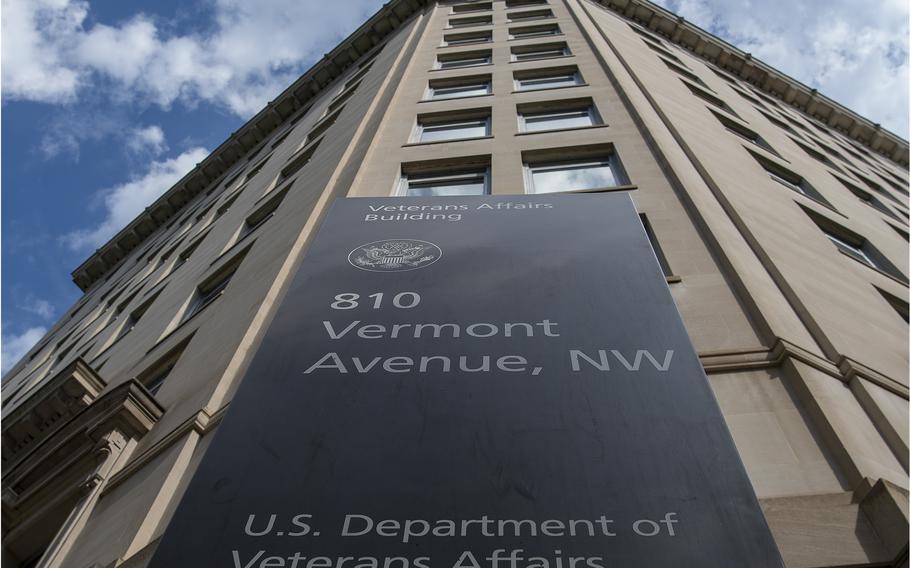
The Department of Veterans Affairs headquarters building is seen in Washington, D.C., on July 6, 2022. According to reports on Monday, March 13, 2023, the VA added Leqembi, which received accelerated approval from the Food and Drug Administration in January, to its list of nonformulary drugs. (Carlos Bongioanni/Stars and Stripes)
(Tribune News Service) — The U.S. Veterans Health Administration will pay for some beneficiaries to get a new Alzheimer's disease drug from Eisai Co. and Biogen Inc., positive news for a treatment that Eisai expects to bring in billions of dollar in sales in the next few years.
The VA added Leqembi, which received accelerated approval from the Food and Drug Administration in January, to its list of nonformulary drugs. Patients who want to take the medication would have to request it, receive prior approval and meet stringent inclusion criteria, according to the VA website.
The decision moves toward broader coverage of the controversial drug category. Tokyo-based Eisai praised the agency in a statement, saying the VA's decision "shows its continued commitment to veterans living" with Alzheimer's disease. The agency oversees care of more than 9 million veterans of the U.S. military.
Biogen shares rose 1% at 3:09 p.m. in New York. Eisai's depositary receipts were up 0.3%.
Leqembi is the first drug shown to slow the progress of Alzheimer's, which robs patients of memories and other brain functions, and Eisai has said that it expects revenue from the product to reach $7.3 billion in 2030. The drug rids the brain of abnormal protein, called amyloid, that has been linked to the lethal disease.
Health officials tightly restricted payment for a similar drug, Biogen's Aduhelm, after it received accelerated approval, saying data hadn't sufficiently shown it was effective. The FDA declined to give early approval to another amyloid-fighting drug, Eli Lilly & Co.'s donanemab, in January.
The VA didn't immediately respond to a request for comment.
Bloomberg News writer Angelica Peebles contributed to this story.
©2023 Bloomberg L.P.
Visit bloomberg.com.
Distributed by Tribune Content Agency, LLC.